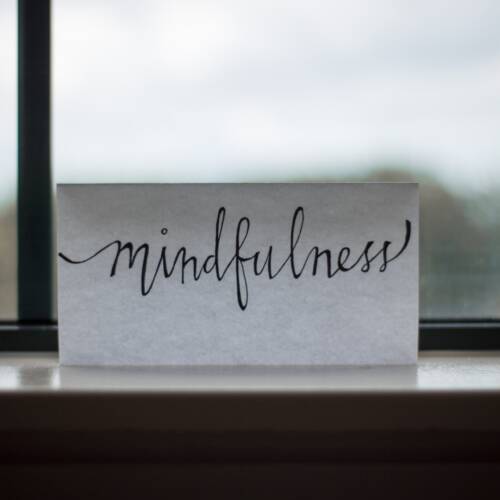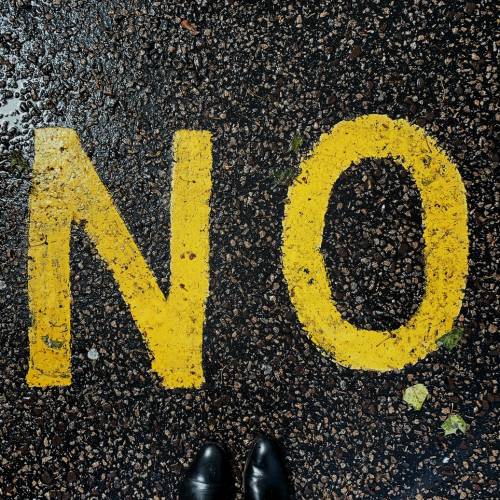
Understanding Loneliness – 11 Tips to Ease the Long-Term Effect of the Pandemic
15 Feb 2021Around the beginning of the pandemic, I wrote an article for Urban Muslimz on simple ways to ease Covid19 anxiety and stress. Little did I know that a year later I would have to address one of the long-term effects of this “new normal” lifestyle.
Loneliness:
In a survey conducted between April and May 2020, investigating the psychological impact of the coronavirus on young adults, roughly 65% reported increased feelings of loneliness since the declaration of the pandemic. Those who described themselves as feeling lonely also reported experiencing anxiety (76%), a loss of feelings of connectedness (58%), and depression (78%).
Experiencing feelings of disconnection and isolation is not a new ordeal. We have all encountered loneliness at some point in life. In fact, in 2017 and 2018, Vivek H. Murthy, author of “Together: The Healing Power of Human Connection in a Sometimes Lonely World”, declared an “epidemic of loneliness,”. Curiously, he also conflated loneliness with homelessness. To belong is to feel at home. “To be at home is to be known,” he wrote. Needless to say, the current “pandemic”, with its prolonged social distancing and physical isolation measures, has resulted in an alarming increase of this “epidemic”.
So, what can we do when loneliness knocks on our doors? Here are 11 tips to help you ease loneliness during these difficult times:
- Reflect:
Try to notice and locate the emotion, when it rises, in your body. Then ask yourself, with curiosity and not blame, “why am I feeling this way?” Sit with the feeling of loneliness and acknowledge it. Be compassionate with yourself as you’d be with a friend who is going through a similar situation.
- Keep a journal:
Writing your reflections down can help tremendously. “Your mind is for having ideas, not holding them.” according to David Allen, author of “Getting Things Done”. Yet dumping your thoughts and feelings into paper will not only make space for other content, it will also put things into perspective.
- Learn to cultivate alone time:
There’s value in spending time on your own. Take this opportunity to learn more about yourself and turn this alone time into selfcare time. Try activities that you enjoy like reading a book, watching a movie, or taking a relaxing bubble bath, etc.
- Nurture pre-existing relationships:
Most of us are incapable of meeting our own families and friends given the current lockdown measures. Make sure you stay connected by scheduling regular virtual meetups with your loved ones.
- Take initiative:
Give yourself a little nudge to send a text, pick up the phone or initiate a conversation with friends. It also might be a good idea to jump online and meet new people via your favourite video game or connecting in forums with like-minded people.
- Get moving:
Physical activity is vital for getting those feelings of stagnation and demotivation out of your system. Get those endorphins flowing by going for a run, maintaining a short workout routine at home or even blasting some music on and dancing it away.
- Spend time around non-humans:
Pets can reduce stress, anxiety, depression, and ease loneliness. If you’re not ready for the responsibility, you could always mind your friend’s or next door neighbour’s pets.
- Take a social media break:
I know it sounds contradictory! However, scrolling through social media and seeing photos of people’s prime moments will sure make you feel even lonelier. A digital detox can help you stop the constant comparison. Remember, life ebbs and flows, and people mainly showcase their flows on social.
- Volunteer:
Volunteering helps get you out into the world and connects you with the community around you. Given the pandemic, focus on finding remote volunteering opportunities like managing a charity’s social media platforms or helping them with some admin work. It’s another great opportunity to virtually meet some like-minded people.
- Know that this is but a phase:
It is pivotal to keep reminding ourselves that whatever we are going through right now, be it Covid or loneliness or any other issue, is just a phase that will pass. You will emerge out of this fogginess into clarity, even if it doesn’t feel that way right now.
- Get support when you need it:
If loneliness persists even after trying some of the tips mentioned above, don’t be afraid to seek professional help. It is important that you get the support you need, reach out to your GP and request a referral to a counselor or a psychologist. Use the following link to know more on how you can get help with loneliness via the NHS.
In her book, “A Biography of Loneliness: The History of an Emotion”, British historian Fay Bound Alberti argues that loneliness didn’t exist before the nineteenth century, at least not in a chronic form. She attributes that to the fact that it wasn’t possible to survive without living and being bonded to others, by ties of affection, loyalty and obligation. This, curiously, consolidates the analogy of homelessness expressed above by Murthy. It also triggers questions about the differences in the experience of loneliness between collective and individualistic communities (which can be a topic for future musings!)
However, no matter how much we try to intellectualise loneliness, the experience in itself is both painful yet transformative. And although lingering there is discouraged, GO AHEAD and feel lonely! It only makes you human. A human being on the path of transformation. The path of knowing thyself and seizing the opportunity to elevate your existence.














